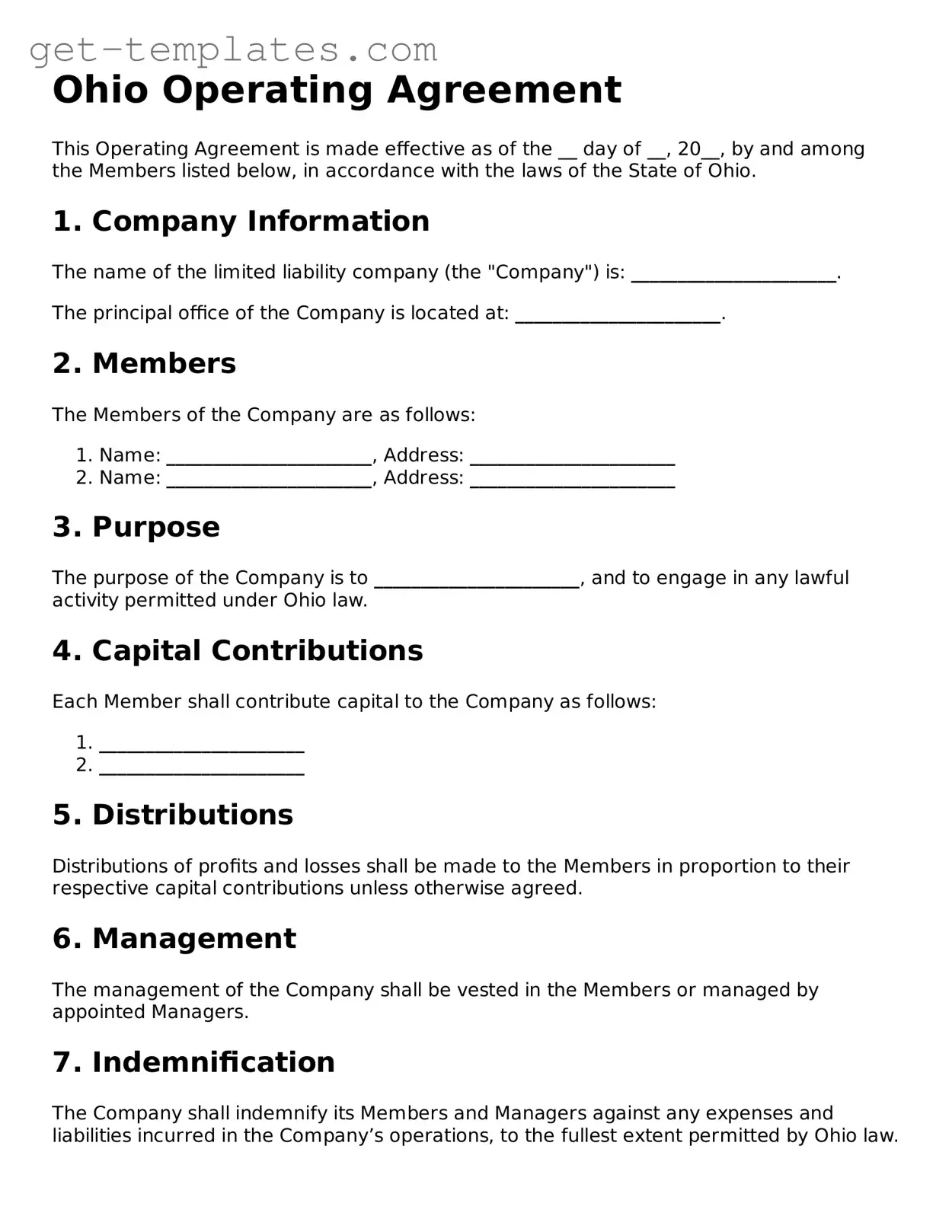Attorney-Approved Operating Agreement Document for Ohio
The Ohio Operating Agreement form is a crucial document for limited liability companies (LLCs) in Ohio, outlining the management structure and operational guidelines of the business. This agreement serves as a blueprint for how the LLC will be run, detailing the rights and responsibilities of its members. Having a well-drafted Operating Agreement can help prevent disputes and ensure smooth operations within the company.
Get Document Online

Attorney-Approved Operating Agreement Document for Ohio
Get Document Online
You’re halfway through — finish the form
Finish Operating Agreement online — edit, save, download made easy.
Get Document Online
or
⇓ PDF Form
